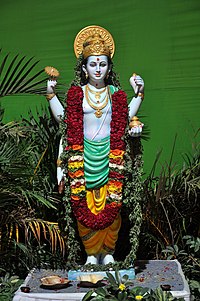Ayurveda, which literally means the science of life (Ayur = Life, Veda = Science), ayurveda is an ancient medical science which was developed in India thousands of years agoor Ayurvedic medicine is a system of traditional Hindu medicine native to the Indian subcontinent. Contemporary practices derived from Ayurvedic traditions are a type of alternative medicine..
Ayurveda aims at making a happy, healthy and peaceful society. The two most important aims of Ayurveda are:
Other important basic principles of Ayurveda are:Ayurveda aims at making a happy, healthy and peaceful society. The two most important aims of Ayurveda are:
- To maintain the health of healthy people
- To cure the diseases of sick people
- Dhatus- These are the basic tissues which maintain and nourish the body. They are seven in number namely- rasa(chyle), raktha(blood), mamsa(muscles),meda(fatty tissue), asthi(bone), majja(marrow) and sukla(reprodutive tissue). Proper amount of each dhatu and their balanced function is very important for good health.
- Mala- These are the waste materials produced as a result of various metabolic activities in the body. They are mainly urine, feaces, sweat etc. Proper elimination of the malas is equally important for good health. Accumulation of malas causes many diseases in the body.
- Srotas- These are different types of channels which are responsible for transportation of food, dhatus, malas and doshas. Proper functioning of srotas is necessary for transporting different materials to the site of their requirement. Blockage of srotas causes many diseases.
- Agni- These are different types of enzymes responsible for digestion and transforming one material to another.

GOD OF AYURVEDA
Ayurveda has eight ways to diagnose illness, called Nadi (pulse), Mootra (urine), Mala (stool), Jihva (tongue), Shabda (speech), Sparsha (touch), Druk (vision), and Aakruti (appearance). Ayurvedic practitioners approach diagnosis by using the five senses. For example, hearing is used to observe the condition of breathing and speech. The study of the lethal points or marman marma is of special importance.

8 Branches of Ayurveda
- Kayachikitsa -Internal Medicine
- Shalya chikitsa -Surgery
- Bala chikitsa- Pediatrics
- Graha chikitsa- Bhoot Vidya - Psychiatry
- Urdhvanga chikitsa-Treatment of eyes, ears, nose, throat and head
- Damstra chikitsa- Agad Tantra -Toxicology
- Jara chikitsa- Rasayana- Gerentorology
- Vrishya chikitsa- vajikarana- Aphrodisiacs




check it out ayurvedic
ReplyDelete